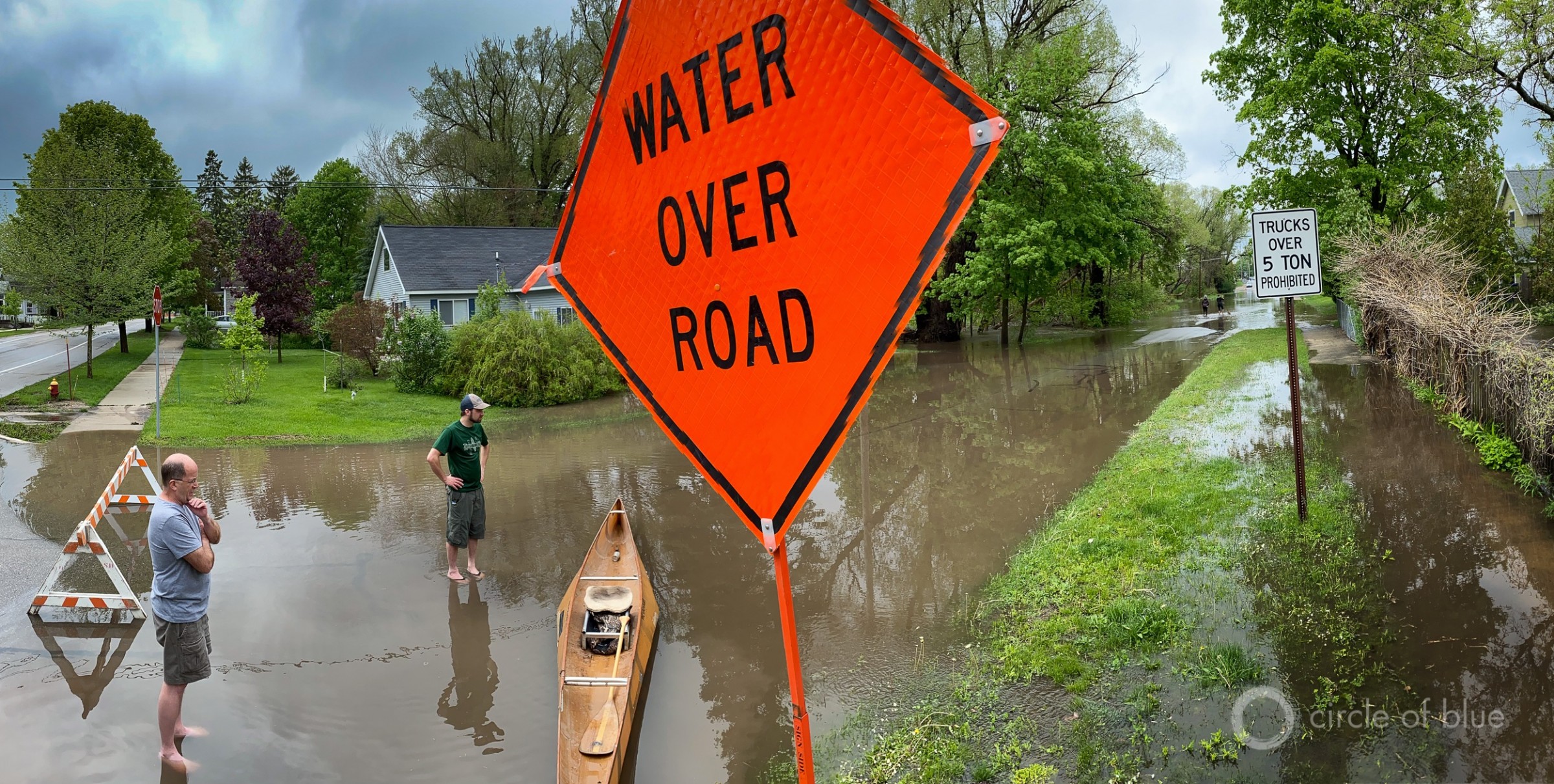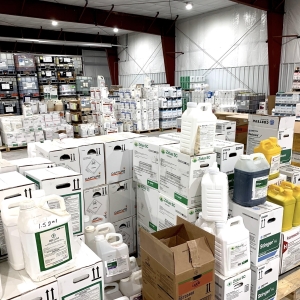The Stream, December 20, 2023: Epic Drought Affects Tunisian Villages as Water Infrastructure Collapses

Severe floods swept through Traverse City, Michigan, on May 28, 2020. The flooding was worsened by saturated ground and historically high water levels in nearby Lake Michigan. Photo © J. Carl Ganter/Circle of Blue
YOUR GLOBAL RUNDOWN
- A new study found that some 7 million Americans have moved from their homes since 2000 to avoid the threat and effects of flooding.
- Dams are closed and reservoirs are dangerously low in Tunisia, where a fourth consecutive year of drought is pushing villages to the brink of collapse.
- To combat air pollution, the government of Pakistan has experimented with artificial rain.
- A new law in Europe banning the import of goods linked to deforestation has trickle down effects for small farmers and markets in Ethiopia.
In a New York City neighborhood called “the Hole,” sewage and flooding illustrate urban consequences of climate change and poor planning.
“From a geological point of view, it’s not an area that should ever have been settled in the first place.” — Klaus H. Jacob, a climate expert at Columbia University.
Flooded streets, sidewalks, and basements are a regular occurrence in “the Hole,” a neighborhood with 300 residents along the border of Brooklyn and Queens. The swampy ground has even attracted snakes, while rats and mold spores are not an uncommon sight. Every time it rains, water and “cesspools” collect.
Sitting at one of the lowest elevations in the city, the Hole’s problems are partly an effect of climate change. Rising sea levels have elevated the groundwater table, the New York Times reports, creating existential worries. Some residents hope the city will buy out their property, while others refuse to leave their homes. Makeshift drainage systems and pumping stations have provided temporary respite for some.
The city is currently working on a resiliency plan for the neighborhood, forthcoming this spring. Mayor Eric Adams has committed $75 million for the project.
— Christian Thorsberg, Interim Stream Editor
Recent WaterNews from Circle of Blue
- “We Can’t Sit Back” – Amid Polluted Water and Climbing Cancer Rates, Iowa Eyes Farm Chemicals — Health authorities react to rampant fertilizer and pesticide contamination in water.
- The Year in Water, 2023 — Scenes from the Great Acceleration
The Lead
The Tunisian village of Ouled Omar, some 110 miles southwest of the capital city Tunis, was once a part of the country’s most fertile agricultural region. But today, the only accessible water for locals comes from a slow-moving, dwindling river, an hour away on foot. Four years into a devastating drought, the village is on the brink of collapse, Al Jazeera reports.
Many people have already left for less fragile circumstances. Across the country, 20 dams have already gone out of service, and capacity for those still operating sits at 22 percent. Like its arid North African neighbors, Tunisia struggles with low water availability.
Even in large cities, water rations have been imposed by the Tunisian government. These limits, however, hurt rural, agricultural areas where people depend on crops and livestock to support their lifeways.
About 300,000 of Tunisia’s 12 million people do not have access to drinking water in their homes.
This Week’s Top Water Stories, Told In Numbers
11 million
Number of residents in Lahore, Pakistan, suffering from acute air pollution this week, France24 reports. In response, officials sent planes with seeding equipment to 10 different areas above the city, where common salt was released into clouds. The substance “encourages condensation to form as rain,” which is useful in combating unclean air. Pakistan has increasingly dealt with dry spells and drought in recent years.
7 million
Number of Americans since 2000 who have moved from their homes to avoid the threat of flooding, according to a new study published in Nature Communications, AP reports. The research found that most people move short distances, seeking relative flood security as opposed to objective safety — for example, moving to a less-flood prone area within highly-flood prone Miami. Over the next 30 years, the model predicts that “Michigan, Indiana and other parts of the Midwest” could become “new climate abandonment areas” as a result of flooding risks, while bigger cities such as Louisville, Detroit, and Chicago could attract more people.
In context: Water Could Make Michigan a Climate Refuge. Are We Prepared?
On the Radar
A proposed law that would restrict the import of goods linked to deforestation into the European Union is already having effects on markets around the world, Reuters reports. The law would not go into effect until late 2024 at the earliest, but already small-time coffee farmers in Ethiopia are seeing their lists of international orders dry up. Others who could be potentially affected by the law include growers of “cocoa, soy, palm, cattle, timber and rubber.”
More Water News
Green Roads: A movement to repurpose historic and existing roads — rather than build new ones — to more safely coexist with waterways is gaining momentum, especially in Kenya and Ethiopia, Yale Environment 360 reports.
Klamath Tribes: In present-day Oregon, on the ancestral lands and waters of the Klamath Tribes, local knowledge and dedicated efforts to save sacred c’waam and koptu suckerfish from extinction are ongoing, Sierra Magazine reports.
Christian Thorsberg is an environmental writer from Chicago. He is passionate about climate and cultural phenomena that often appear slow or invisible, and he examines these themes in his journalism, poetry, and fiction.







Leave a Reply
Want to join the discussion?Feel free to contribute!